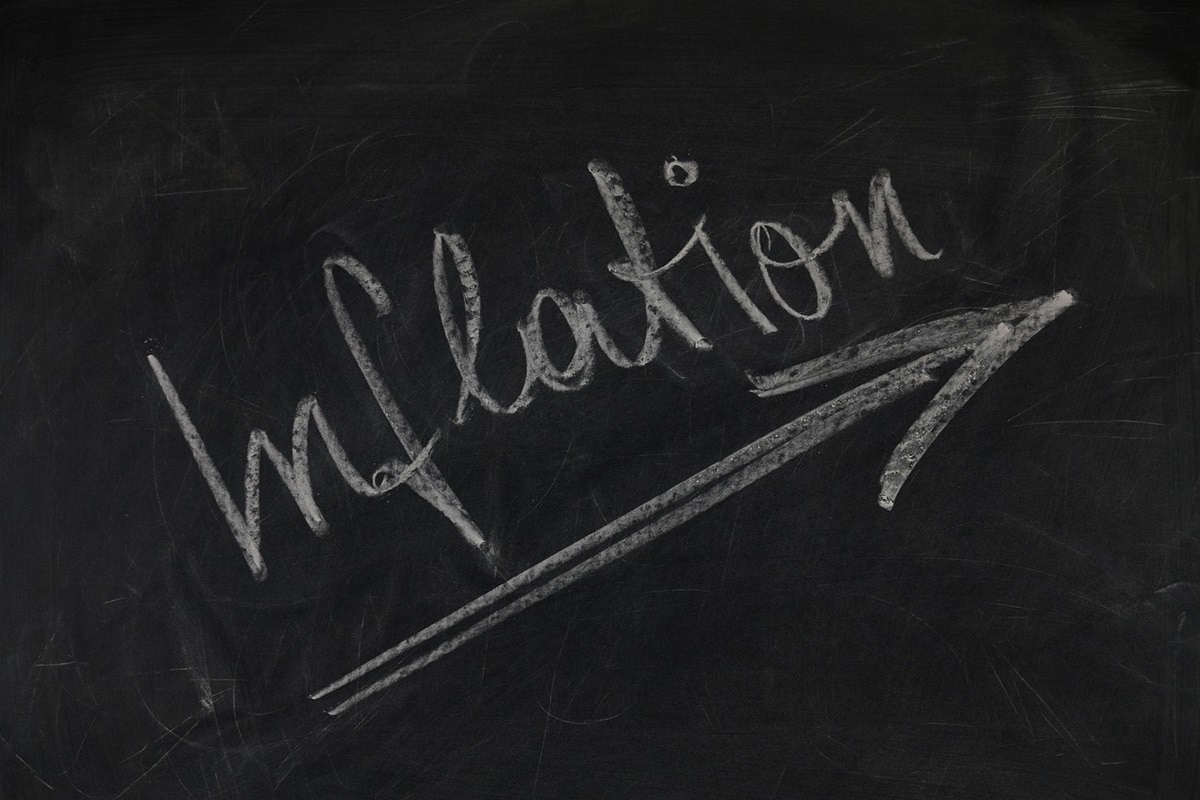In September, inflation in the eurozone fell below the European Central Bank’s 2% target.

Last month, consumer prices in the mentioned region showed an increase of 1.8% year-on-year. The relevant information was published on Tuesday, October 1, by Eurostat. It is worth noting that the September result coincided with the preliminary expectations of analysts interviewed by the media regarding the dynamic inflation.
In August, consumer prices in the eurozone increased by 2.2% year-on-year. A noticeable decrease in this indicator in September is due to a sharp drop in energy costs.
Core inflation in the eurozone was fixed at 2.7% last month.
According to the media, it is highly likely that the data published by Eurostat on Tuesday will become a factor in strengthening the actively spreading opinion among investors that the European Central Bank will begin to apply solutions aimed at easing monetary policy more intensively. The relevant point of view provides that the European financial regulator should act more quickly in the context of the mentioned issue since the appropriate approach is constructive and appropriate as a measure for a stuttering economy and unexpectedly rapid disinflation.
The president of the European Central Bank, Christine Lagarde, told lawmakers of the European Union last Monday, September 30, that officials of the financial institution she heads will take into account the growing optimism about consumer prices when deciding on changes to the monetary policy strategy during a meeting on the relevant issue scheduled for October 17. Probably, this statement is a hint that in the current month, the specified financial regulator will decide on another lowering of the cost of borrowing.
Against the background of the data published by Eurostat, the dynamic of consumer prices in September, the euro fell by 0.4%, amounting to 1.109 US dollars and retreating from an almost two-year high.
In the context of the news of the first days of the current week, money markets have become more confident that in October, officials of the European Central Bank will make another decision on cutting interest rates during a monetary policy meeting. It is worth noting that since June, the European financial regulator has already lowered the cost of borrowing twice. Money markets estimate that there is an almost 90% probability that the European Central Bank will decide on cutting interest rates in October.
The media also report on the significant realism that the mentioned financial regulator will lower the cost of borrowing once again in December. If this assumption is confirmed by reality, the deposit rate in the eurozone will decrease to 3% from the current 3.5%.
Moreover, it is worth noting that many economists have revised their forecasts regarding the likelihood of lowering borrowing costs in October. In this case, it is implied that experts have begun to assess the next cutting of interest rates in the eurozone as more realistic. Goldman Sachs and JPMorgan are among those Wall Street banks that predict the appropriate decision in October.
Morgan Stanley economists led by Jens Eisenschmidt said in a note that, in their opinion, in the current month, the European Central Bank will begin a series of consecutive lowering of borrowing costs by 25 basis points. Also, these experts suggest that after the 2.5% mark is reached in March following the results of the mentioned actions, the process of monetary policy easing will slow down and interest rate cutting will be carried out as part of a more gradual lowering schedule at each projection meeting.
The media notes that since the summer, so-called dovish sentiments have been dominated among officials of the European Central Bank. In this case, it implies a position that provides for the desire to ease monetary policy and the rejection of harsh measures. This kind of background is favorable in terms of the prospects for continued interest rate cutting by the European Central Bank.
An increase in the intensity of the pace of monetary policy easing in the eurozone has become a more realistic prospect after business surveys conducted by S&P Global last week showed that the economy of the region contracted in September. Also, during the relevant surveys, a weakening of demand and easing of price pressure were recorded. In this context, it should be noted that inflation in Germany, France, and Spain fell below 2%.
The headline numbers are under pressure largely due to unstable energy costs. With a high probability, the corresponding indicators will begin to grow by the end of the current year. It is worth noting that the corresponding forecast was published by the European Central Bank. Moreover, this financial regulator expects that a steady return of inflation to the target of 2% will be recorded only at the end of 2025.
Inflation in the European services sector was fixed at 4% in September. It is worth noting that officials pay attention to this indicator to determine the strength of domestic price pressure. In August, inflation in the European services sector was fixed at 4.1%.
The growth of wages, which is the main driving force behind the increase in the cost of services, in the eurozone is currently characterized by sticky, although a clear vector of its dynamic is a trajectory of easing. Philip Lane, chief economist of the European Central Bank, said that the corresponding tendency to continue once workers’ pay has been made up for the loss in purchasing power seen in recent years.
Christine Lagarde stated that there is a belief that the European services sector is also starting to abate, slowly and gradually. According to her, there is currently a movement towards reduced inflation.
It is worth noting that recently there has been an increase in concerns about the state of affairs in the eurozone economic system. The corresponding sentiment intensified against the background of pessimistic prospects for the German manufacturing sector. The media reported that Berlin intends to revise its economic growth forecast for 2024. According to preliminary information, the German government may officially declare that the corresponding indicator will be zero. At the same time, officials have not yet commented on this possibility. The media released information about Berlin’s likely revision of the economic growth forecast for 2024, citing insiders. The journalists’ informants claim that the German government will perceive stagnation as a positive scenario. It is worth paying attention to the fact that the economy of this country is one of the largest in the eurozone, which is why its condition can be described as a factor determining the overall state of affairs in the eurozone. Last year, the German economic system was experiencing a contraction.
It is also worth noting that there is currently a consumer behavior in the eurozone that is characterized by moderation in the context of an approach to spending. Against the background of the fact that the economic outlook is not unambiguously positive, they do not very often make purchases that do not belong to the category of critically necessary and related to meeting priority needs. At the same time, consumers are actually the beneficiaries of slowing inflation and rising incomes.
Finnish central bank chief Olli Rehn said on Tuesday that headwinds for economic growth mean that it is currently impossible to declare that the so-called soft landing has been ensured. According to him, the relevant circumstance should be taken into account when making future decisions on monetary policy, without jeopardizing price stability.
Franziska Palmas, senior Europe economist at Capital Economics, in a note, said that in the coming months, there may be a temporary rebound of inflation, but the headline reading is likely to remain below the 2% mark next year.
Bert Colijn, chief economist for the Netherlands at ING, believes that a renewed pickup of inflation in the eurozone is not entirely certain. The expert said that a bounce back is expected in the fourth quarter of 2024, but it is not known to what extent this may materialize since petrol prices are falling rapidly against the background of cheaper oil. Bert Colijn stated the corresponding opinion in a note.









